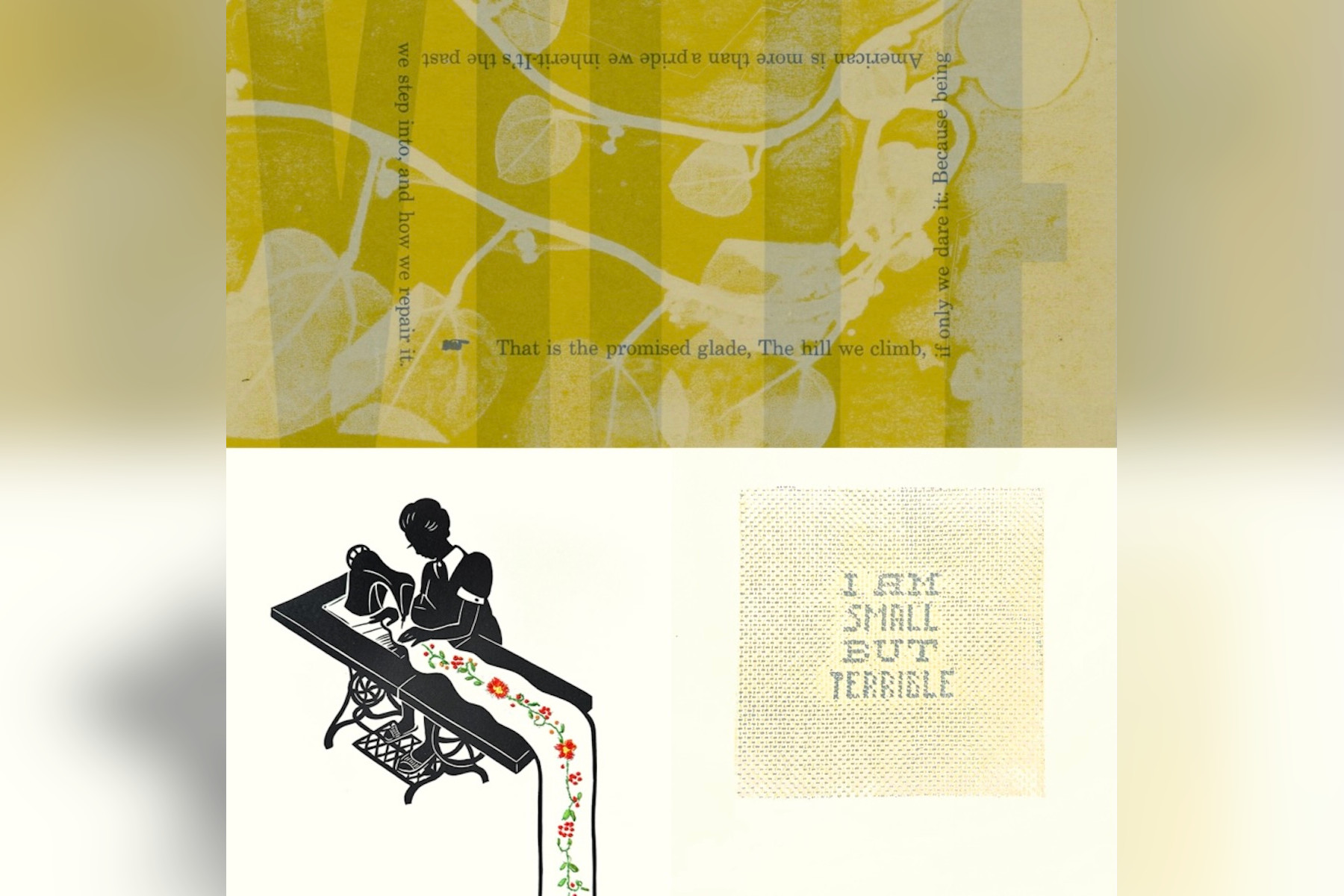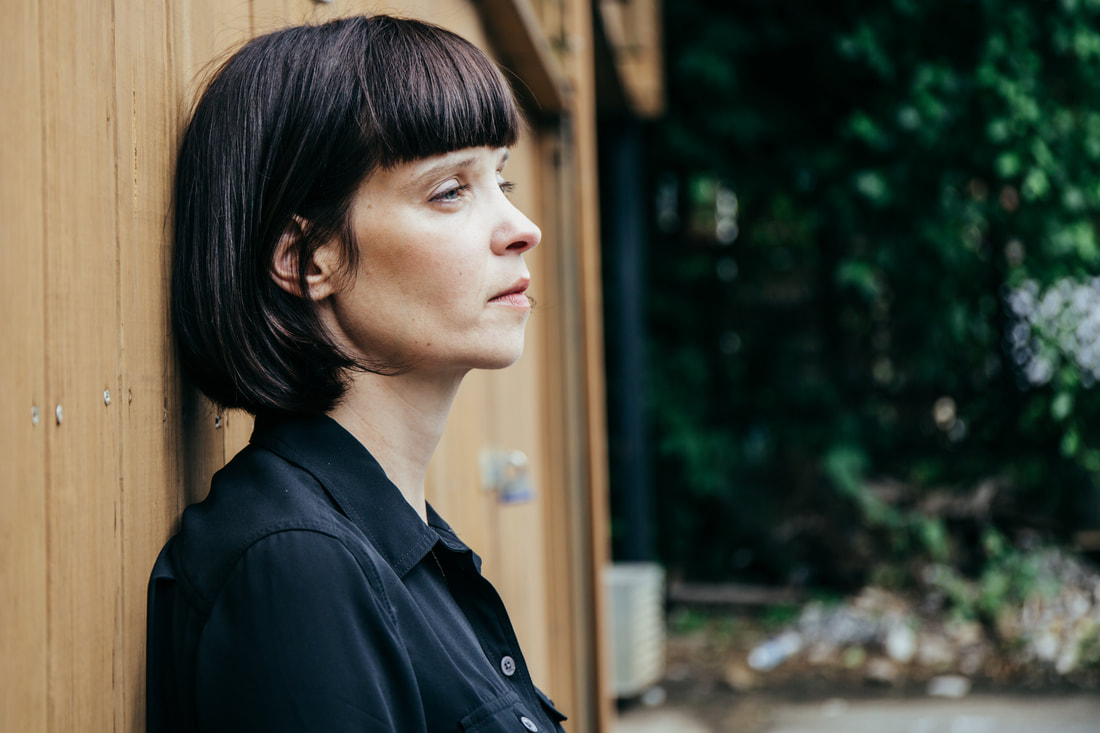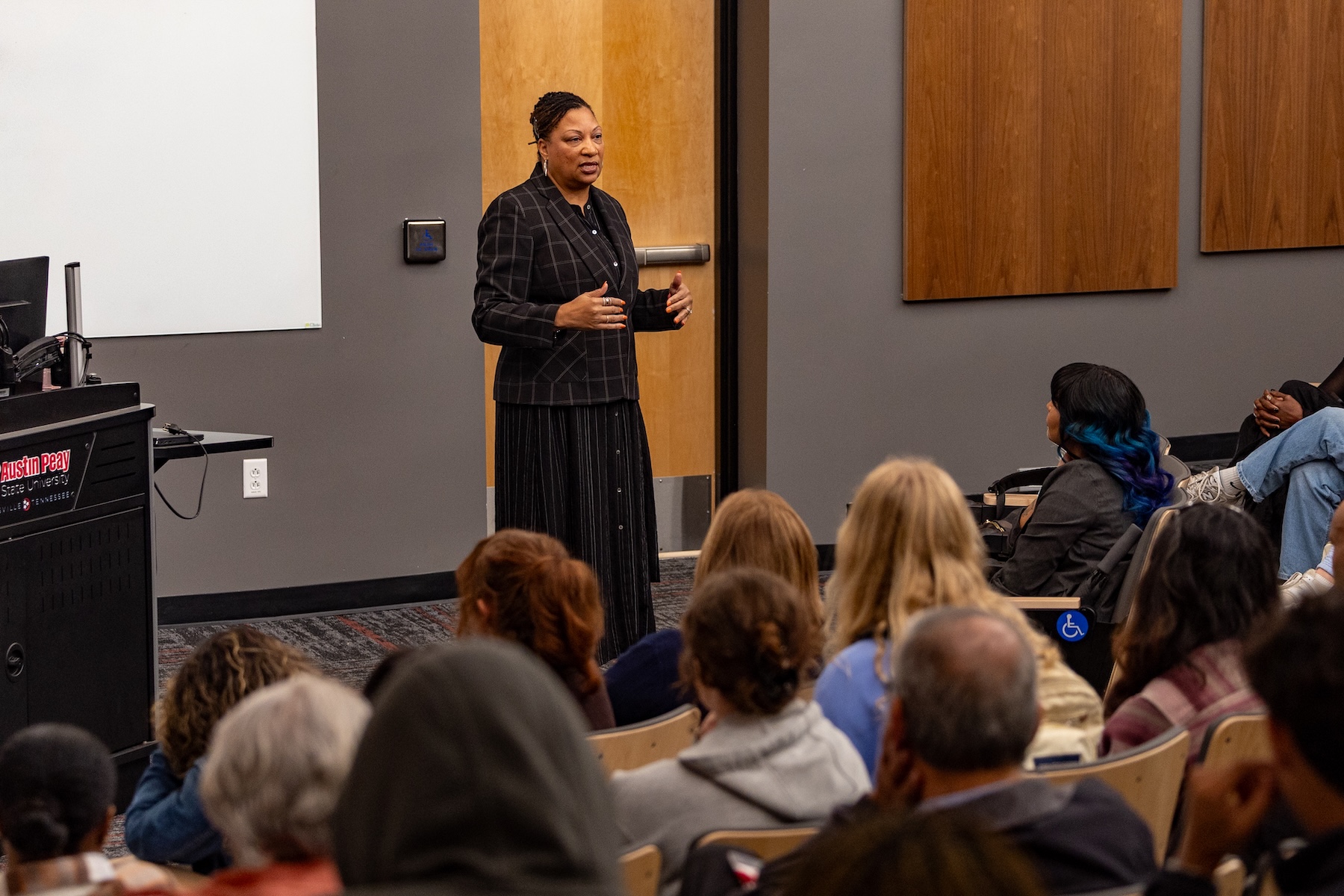If Austin Peay Could Talk: Jessica’s Story
(Posted Aug. 7, 2020)
“If Austin Peay Could Talk” is a new, special series about listening. Paying tribute to James Baldwin’s novel, “If Beale Street Could Talk,” the essays in this series are meant to magnify the experiences of the University’s black faculty and staff. Every Friday, a different University employee will share their own deeply personal story about racism – stories that have been overlooked for too long. Today, Austin Peay is talking, and we hope you will simply listen to these important words.
Of culture and compromise
I am a descendent of the Gullah Geechee people of South Carolina. We are people, culture, and language, maintaining our African heritage with pride and demonstrating a resolve to hold our connection to that history. Our language is a Creole dialect and unique, but growing up, I acquired an understanding of how differences in language can be rooted in prejudice.

I remember the first time my language was stifled; at 10 years old, I knew the value of being Geechee at home but found it held no currency at the mostly white private school I attended. My teacher told me that if I couldn’t speak proper English at school, that she couldn’t answer any of my questions. I kept telling myself that what I said was proper and didn’t understand how a person knew exactly what I needed but refused to give it to me because it didn’t fit her expectations. As the only Black person in the class and the only person being teased in this way, the reality of my identity became clear to me and I realized very quickly that she wanted me to compromise my Blackness for her comfort. I wasn’t being corrected, I was being ignored. Let’s be clear: I knew the English language and succeeding in her class reminded her of this; she was simply incapable of accepting my brand of communication while praising my peers with their “Southern drawls.”
I didn’t have the words at 10 to describe the way I felt, but now I command the language because it is mine and cannot be given up. That 10-year-old me felt like my words were being erased, and where pride once lived, it was requested that I compromise myself for her. I had to work harder than my peers to speak to my teacher’s standard at school while waiting impatiently to feel the freedom to be myself in my home and community. That was her failed perception of the language she refused to embrace; just miles down the road was the home of the first school for freed slaves; education is the passion of our community; but for her, it was an inconvenience. Eventually, I calculated the cost of that private school education. I was asked to sell my identity for an A, and the change I received was embarrassment on the receipt of shame.
For years, I’ve cringed at the microaggression of “speaking so well” because they fail to recognize the backhandedness of the compliment; I’ve been more annoyed by perceptions white people have of me for being educated in private school settings. A colleague once referred to the Gullah language as sounding uneducated. After telling her my story and introducing my background, she remained silent, possibly gaining some new insight into the value the Gullah Geechee people bring to our nation. And in that moment, I realized that I was released from the pressure of living in the duality of culture and compromise. To be Gullah is to have a resolve to remain connected to the history, not adjacent to it. There was freedom in telling my story then and pride in telling my story today. History might have given my body a price tag, but there will never be a value large enough to replace what it means to be Black, to be Gullah and to be proud of it.
-- Dr. Jessica Fripp, assistant professor, Psychological Science and Counseling
News Feed
View All News
The free public symposium will feature letterpress and typographic demonstrations along with short evening lectures from artist-designers Heather Moulder, Cory Wasnewsky, Celene Aubry, and Kathleen O'Connell.
Read More
Austin Peay State University's Zone 3 Press, with support from the Center of Excellence for the Creative Arts, is hosting NEA Creative Writing Fellowship recipient and award-winning writer Toni Jensen for a free public reading and book signing at 7 p.m. on Thursday, Feb. 19, in Art + Design Room 120.
Read More
David Hogan of Ribbon Communications and David "Buck" Dellinger of the Clarksville-Montgomery County Economic Development Council (EDC) will share their real-world perspectives on leadership, innovation, and career development during this semester's speaker series.
Read More